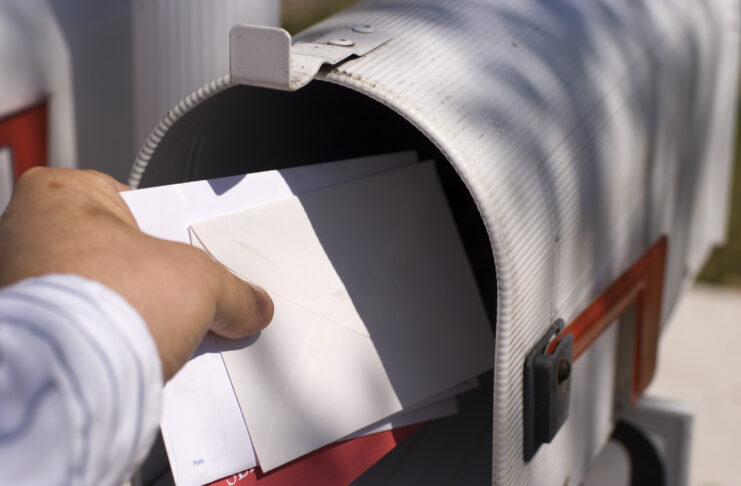A United States Postal Service (USPS) report obtained by Judicial Watch goes into unprecedented detail on the Postal Service's covert operations program.
For over a year, it's been known that the law enforcement arm of USPS has utilized sophisticated tools, including fake accounts managed by analysts, facial recognition software that scraps images off of websites and digital surveillance tools to comb through social media sites. “Inflammatory” posts about politics, planned protests and anything else the Postal Service considers relevant is then shared with other law enforcement agencies.
The program is far broader in scope than initially thought. To those intimately familiar with it, it is known as Internet Covert Operations Program (ICOP).
Civil liberties experts have questioned the legality of the program with increasing scrutiny. Troubled by the USPS' need for such a program, they often find themselves asking, if individuals are truly planning criminal activity online why doesn't this fall under the purview of the FBI?
As Judicial Watch reports on its fight for transparency:
Judicial Watch quickly launched an investigation, filing a Freedom of Information Act (FOIA) request with the USPS for information relating to ICOP. As the government often does with FOIA requests, it failed to meet the federally mandated deadline for providing the records and Judicial Watch was forced to file a lawsuit in early July. Among the things Judicial Watch asks for in the federal complaint is all records from January 1, 2020 to the present identifying criteria for flagging social media posts as “inflammatory” or otherwise worthy of further scrutiny by other government agencies. It also asks for records relating to ICOP's database of social media posts, communications between USPIS and FBI or Homeland Security regarding the program and an analysis outlining the authority of the USPIS to monitor, track and collect Americans' social media posts. Judicial Watch will provide updates as the case evolves.
In the meantime, Judicial Watch is filing a FOIA request with the USPS for information on the devices used by the agency to hack cell phones. The news agency that exposed the alarming operation this week discovered its existence in the USPIS's 2019 and 2020 annual reports. “Altogether, the records suggest that the USPIS has cracked hundreds of iPhones—generally thought to be one of the most secure commercial phones on the market—as well as other devices,” the article states. The hacking tools are known as Cellebrite and GrayKey and they were used by the agency to extract previously unattainable information from seized mobile devices. In fiscal year 2020, 331 devices were processed and 242 were unlocked and/or extracted, according to information obtained from the USPIS reports. The 2020 document discloses an increase in phone cracking from the previous year.
These clandestine operations within the nation's postal service should create concern, especially for a troubled agency that has failed miserably to fulfill its mission. The USPS has long been a bastion of mismanagement and frivolous spending that has fleeced American taxpayers out of billions in the last few years alone. In 2021, the USPS reported a net loss of $4.9 billion and in 2020 a net loss of $9.2 billion. One federal audit slammed the USPS for blowing the opportunity to save nearly $22 million had it bothered to maintain its fleet of vehicles more efficiently. A few years before that the USPS blew hundreds of thousands of dollars on professional sports tickets, booze and fancy meals while it claimed to be crippled by an $8.3 billion deficit. The items were purchased by USPS managers and employees with special charge cards issued to U.S. government agencies. The USPS's top executives have also been found to receive illegally high salary and compensation packages that should outrage the public. Several years ago, a federal audit found that at least three USPS officers made more than the legal compensation limit for their respective work category while the agency was billions in the red.
A report by Yahoo News' Jana Winter from last May echoed the same concerns:
“The U.S. Postal Inspection Service appears to be putting significant resources into covert monitoring of social media and the creation and use of undercover accounts. If these efforts are directed toward surveilling lawful protesters, the public and Congress need to know why this is happening, under what authority and subject to what kinds of oversight and protections,” said Rachel Levinson-Waldman, deputy director of the Liberty & National Security Program of the Brennan Center for Justice.
The U.S. Postal Inspection Service has vigorously defended the ICOP program. At the time, a spokesperson told Winter, “This review of publicly available open source information, including news reports and social media, is one piece of a comprehensive security and threat analysis, and the information obtained is the same information anyone can access as a private citizen.” They added “News report and social media listening activity helps protect the 644,000 men and women who work for the Postal Service by ensuring they are able to avoid potentially volatile situations while working to process and deliver the nation's mail every day.”



I’m calling BS on this!!!!! I hope JW can bring the USPS TO THEIR KNEES!!!!! Fine USPS BIG TIME!!!!
And who is in charge of the U.S. Postal Service? Why non other than Louis DeJoy, a Trump appointee. It seems he is responsible for the surveillance.